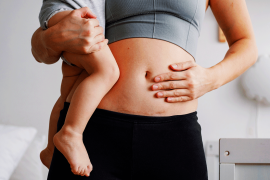Health Tips for Pregnant Women
Pregnant women have unique health needs that require special attention. Eating a healthy diet and engaging in physical activity are important for pregnant women to ensure they get the nutrients they need for themselves and their baby. Making lifestyle changes before getting pregnant can help set up good habits for the future.
A balanced diet with plenty of fruits and vegetables, whole grains, and healthy snacks is recommended. Avoid drinks with caffeine and added sugars, as well as raw or uncooked foods, soft cheeses, raw or rare meats, unpasteurized juices or milks, lunch or deli meats, prepared salads, and raw sprouts.
Women at risk for gestational diabetes should monitor their blood sugar daily and follow a healthy diet and exercise plan. Taking care of one’s health during pregnancy can provide the best possible start for the baby.
Learn how to ensure a safe and 10 Tips for a healthy pregnancy with these ten essential tips. From diet, exercise and doctor visits to common do’s and don’ts- start preparing for your baby today!
Take a Prenatal Vitamin
Prenatal vitamins are an important part of a healthy pregnancy diet. As soon as you know you’re pregnant, or even before if trying to conceive, it’s important to start taking a daily prenatal multivitamin. These vitamins provide essential nutrients such as folate, calcium and iron for the baby’s development. Prenatal vitamins are available over the counter or by prescription from a doctor.
Key nutrients needed during pregnancy include folic acid, iron and calcium. Folic acid helps prevent birth defects in the baby’s brain and spine while iron helps form red blood cells in the baby and prevents anemia in the mother.
Calcium is essential for strong bones and teeth in both mother and baby. Taking a daily prenatal multivitamin can help ensure adequate nutrition for both mother and baby throughout pregnancy. It is also important to eat a balanced diet with plenty of fruits, vegetables, whole grains, lean proteins and healthy fats to ensure proper nutrition during this special time.
Exercise
Exercising during pregnancy is an important part of staying healthy and keeping your body in shape. Regular exercise can help reduce stress, improve circulation, and boost mood. Pregnancy exercise classes, walking, Pilates, yoga, and swimming are all good activities for pregnant people. Aim for 30 minutes of exercise most days of the week but listen to your body and don’t overdo it.
Regular physical activity during pregnancy has many benefits including helping with weight gain, reducing backaches and leg cramps, and reducing the risk of gestational diabetes and postpartum depression. It may also reduce the risk of problems during pregnancy such as preeclampsia, shorten labor and postpartum recovery time, and reduce the risk of having a cesarean section.
Write a Birth Plan
Having a birth plan is an important part of preparing for the arrival of your baby. It helps to ensure that you and your partner are on the same page about what you want during labor and delivery. When creating a birth plan, it is important to consider who you want present during delivery, procedures to avoid, preferred positions for labor and delivery, pain medications desired, special clothing, music/focal point, and what to do in case of complications.
It is also important to make sure that both mother and baby are healthy before getting pregnant. Mothers who have children early or late in life are at greater risk for having a premature birth. Women should wait at least 18 months between pregnancies to reduce the risk of a premature baby.
Educate Yourself
It is important to educate yourself on childbirth and infant care before delivery. Attending a childbirth class can provide an opportunity to learn more about the process and help prepare for delivery. It is also beneficial to brush up on family medical history, including any past pregnancies or birth defects. Becoming familiar with the facility and staff can help alleviate any worries you may have.
Practice Kegels
Kegel exercises are an important part of maintaining a healthy pelvic floor. These exercises help to strengthen the muscles that support the bladder, bowels, and uterus. This can make delivery easier and prevent incontinence. Doing Kegels correctly is essential for getting the most out of them. To do them properly, you should practice squeezing as though you’re stopping the flow of urine when you use the bathroom, hold for three seconds, then relax for three; repeat 10 times.
Kegel exercises are easy to do and can be done anywhere without anyone noticing. They don’t require any special equipment or clothing and can be done while sitting, standing, or lying down. It’s important to remember that it takes time to see results from these exercises so it’s important to stay consistent with your routine. With regular practice, you’ll soon notice improved muscle tone in your pelvic floor muscles which will lead to better bladder control and other health benefits.
Eliminate Toxins
Eliminating toxins from your life is an important step to take for the health of you and your baby. Tobacco, alcohol, illicit drugs, and solvents such as paint thinners and nail polish remover should be avoided while pregnant. Smoking cigarettes has been linked to preterm birth and other complications, so if you are unable to quit smoking or drinking on your own, it is important to seek advice from a doctor.
In addition to avoiding these substances, it is also important to choose natural cosmetics and household cleaners, buy organic foods when possible, avoid BPA-containing products such as plastics and cash register receipts, and avoid cleaning the cat’s litter box or eating raw or undercooked meat in order to prevent toxoplasmosis. By taking these steps you can reduce your exposure to harmful chemicals during pregnancy and ensure that both you and your baby stay healthy.
Change Up Chores
Household chores can be a daunting task, especially when you’re pregnant. It’s important to take extra precautions to ensure your safety and the safety of your baby. Avoid climbing on step stools and ladders, changing kitty litter, and using harsh chemicals while pregnant. Wear gloves when working in the yard where cats may have been. Wash hands thoroughly after handling raw meat.
It doesn’t have to be all work and no play when it comes to housework. Put energy into housework by listening to music or viewing it as part of an activity programme. Make housework less of a chore by breaking it up into smaller tasks that can be completed throughout the day or week.
You can also enlist help from family members or hire someone else to do some of the more difficult tasks for you. With these tips, you can make household chores easier and safer during pregnancy.
Check Your Medications
It is important to check with a doctor or midwife before taking any over-the-counter medications, supplements, or “natural” remedies while pregnant. Taking non-steroidal anti-inflammatory drugs (NSAIDs) such as ibuprofen during pregnancy can increase the risk of miscarriage and cause damage to fetal blood vessels.
It is best to consult a physician before taking any medication, prescribed or otherwise. Before trying to get pregnant, it is important to write down all medications you are currently taking so that you can discuss each one with your doctor and determine if it is safe during pregnancy. Insulin should not be stopped during pregnancy as this could have serious consequences for both mother and baby.
Go Shoe Shopping
When pregnant, it is important to take extra care of your feet. Pregnancy can cause overpronation and swelling of the feet, ankles, and legs. To help reduce fatigue and swelling, it is important to wear comfortable, non-restricting shoes when pregnant. Taking breaks throughout the day to put your feet up can also help reduce fatigue and swelling.
Walking is a realistic form of exercise during pregnancy that can help manage blood sugars and weight gain. Aim for 20-30 minutes of steady walking 4-5 days a week. When going shoe shopping for pregnancy, look for shoes with good arch support that are flexible enough to move with you as you walk. Shoes should be lightweight and breathable to keep your feet cool and comfortable while walking. Look for shoes with plenty of cushioning in the sole to absorb shock from walking on hard surfaces.
Drink More Water
Drinking more water during pregnancy is essential to support the increased blood volume and keep the body functioning properly. Aim for 8-10 glasses of water per day, and if plain water isn’t appealing, add a squeeze of lime or a splash of fruit juice to make it more enjoyable.
Staying hydrated helps regulate body temperature and can help prevent constipation, hemorrhoids, UTIs, fatigue, headaches, and swelling. Sports drinks high in electrolytes are also beneficial when exercising or spending time outside.
It’s important to remember that drinking enough water is not only beneficial for pregnant women but for everyone. Water helps flush toxins from the body and keeps systems working properly. It can also help with weight loss by making you feel fuller longer so you don’t overeat. So make sure to drink at least 8-10 glasses of water every day to stay healthy and hydrated!



